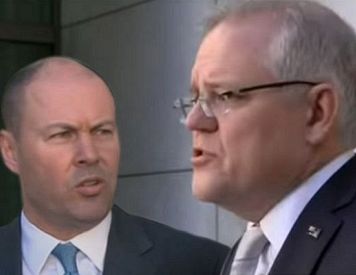Australian workers have received all-time low annual wages rise over the financial year just ended, reports Alan Austin.
AUSTRALIA HAD ALWAYS rewarded workers with steady wage increases year on year as industrial cooperation and improving productivity have generated ever-rising company profits.
That is, until 2013, when the current Coalition Government came to power.
In the eight years since then, wage rises have fallen to a fresh all-time low six times, the latest at an appalling 1.71%, according to last week’s data.
The Australian Bureau of Statistics (ABS) began recording wage levels across Australia in 1997. Until 2013, the annual rise varied between 2.84% and 4.16%. The average was a healthy 3.54%.
This compared well with other countries. Over the same period, wage rises averaged 3.4% in Sweden, 3.2% in Britain, 2.4% in Italy, 2.3% in Canada and the Netherlands and 1.3% in Switzerland.
That has now shifted dramatically. The Coalition Government's policies have seen wages tumble as profits have soared.
From 1997 until 2013, the lowest wage rise recorded was 2.96% in the year to June 2013, as economies worldwide emerged from the Global Financial Crisis (GFC). The next eight years under the Coalition all yielded wage rises lower than the lowest recorded by any previous government.
Majority of Australian workers much poorer
The other variable which serves to advantage employers and disadvantage workers is inflation, which is rising alarmingly under current economic mismanagement. Inflation to June was 3.85%, which means the average real wage rise – pay increases minus inflation – was actually negative 2.15% over the year to June.
We know that many high salary earners received strong pay rises over that period, so the vast majority of workers suffered a substantial decline in their real disposable income and standard of living.
How low can wages actually go?
In its first year, the Coalition under Tony Abbott achieved what was then the all-time lowest wage rise level of just 2.59%. Boardrooms across the nation celebrated gleefully. Abbott and his hapless Treasurer Joe Hockey bettered that the very next year with wage rises down to 2.27%, before they were both dumped by their own Party.
Incoming Treasurer Scott Morrison outdid Hockey in dudding Australian workers in 2016 with a new record low wage rise of just 2.06%. He managed an even greater outcome for the big foreign employers when wages rose a miserable 1.94% in 2017.
That made four consecutive years of fresh record low wage rises.
After Morrison gained the top job and the woefully underqualified Josh Frydenberg became Treasurer, two more all-time low wage rises were recorded: 1.82% to June 2020 and 1.71% to June 2021.
The question the jubilant bosses are now asking is how low can wages go yet? Can Morrison and Frydenberg succeed in shifting even more wealth and income from the poor and middle-income Australians to them?
Global comparisons
This is yet another area where Australia has tumbled from at or near the top of all developed countries before this incompetent regime took office to among the losers today.
Trading Economics has current wage and inflation data for 32 developed OECD members. Twelve of these generated real wage rises – increased pay rate minus inflation rate – above 2%.
Another nine managed real wage rises below 2%. That leaves eleven economies whose workers lost pay in real terms over the last year. Of these, Australia was among the bottom four.
Record low wage rises as profits soar
This is not the inevitable result of the pandemic or a global economic downturn, or any other external factor. It is the outcome of specific decisions by governments and corporations to shift wealth and income from the poor and middle-income earners – the majority of Australians – to the rich corporations in Australia and beyond.
Company profits have risen impressively over the last eight years, by an average of 8.02%. They are continuing to boom.
The Commonwealth Bank reported last Friday that 27 companies listed on the Australian stock exchange have reported earnings for the year to June. Net profit overall rose 32%, dividends are up 66% and cash holdings rose by 152%.
All companies announced a final dividend. Only one company reduced its dividend compared with a year ago.
The bank said:
‘Aussie companies are cashed up and keen to reward shareholders ... Of all the ASX 200 companies that have reported full or half-year earnings to date, $17.7 billion will be returned to shareholders via dividends or buybacks, up from $6.0 billion a year earlier.’
Record high profits and record low wages are the choices of this Government. Whether or not this Government continues is the choice of Australian voters.
Alan Austin’s defamation matter is nearly over. You can read the latest update here and contribute to the crowd-funding HERE. Alan Austin is an Independent Australia columnist and freelance journalist. You can follow him on Twitter @alanaustin001.
Related Articles
- The pandemic is your fault according to the Coalition
- Government reliance on army for lockdowns a weak move
- Morrison's policy failures will be his undoing
- Public policy failure of Coalition's vaccine rollout
- Morrison’s recession: Australia’s worst since records have been kept
 This work is licensed under a Creative Commons Attribution-NonCommercial-NoDerivs 3.0 Australia License
This work is licensed under a Creative Commons Attribution-NonCommercial-NoDerivs 3.0 Australia License
Support independent journalism Subscribe to IA.














